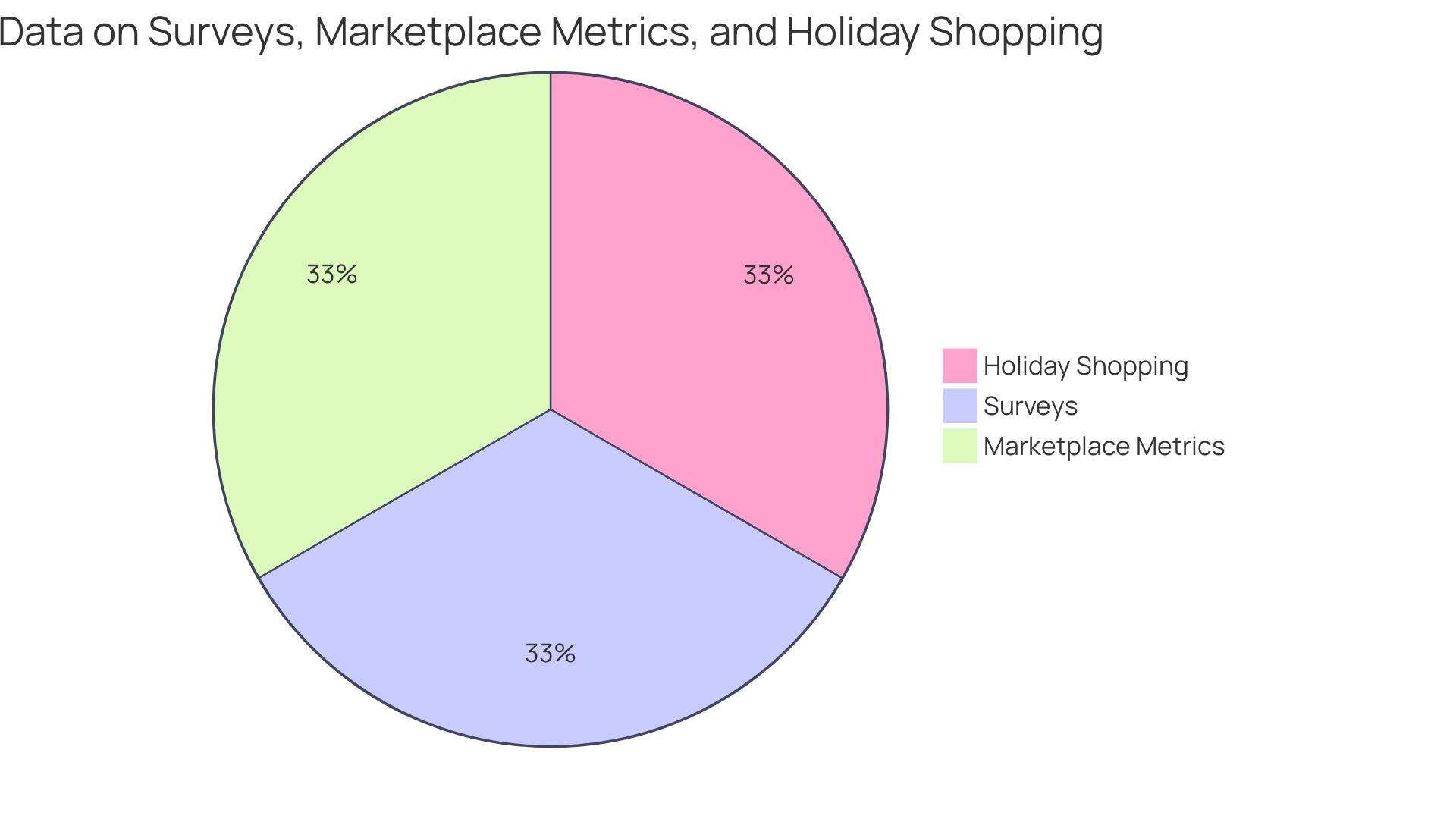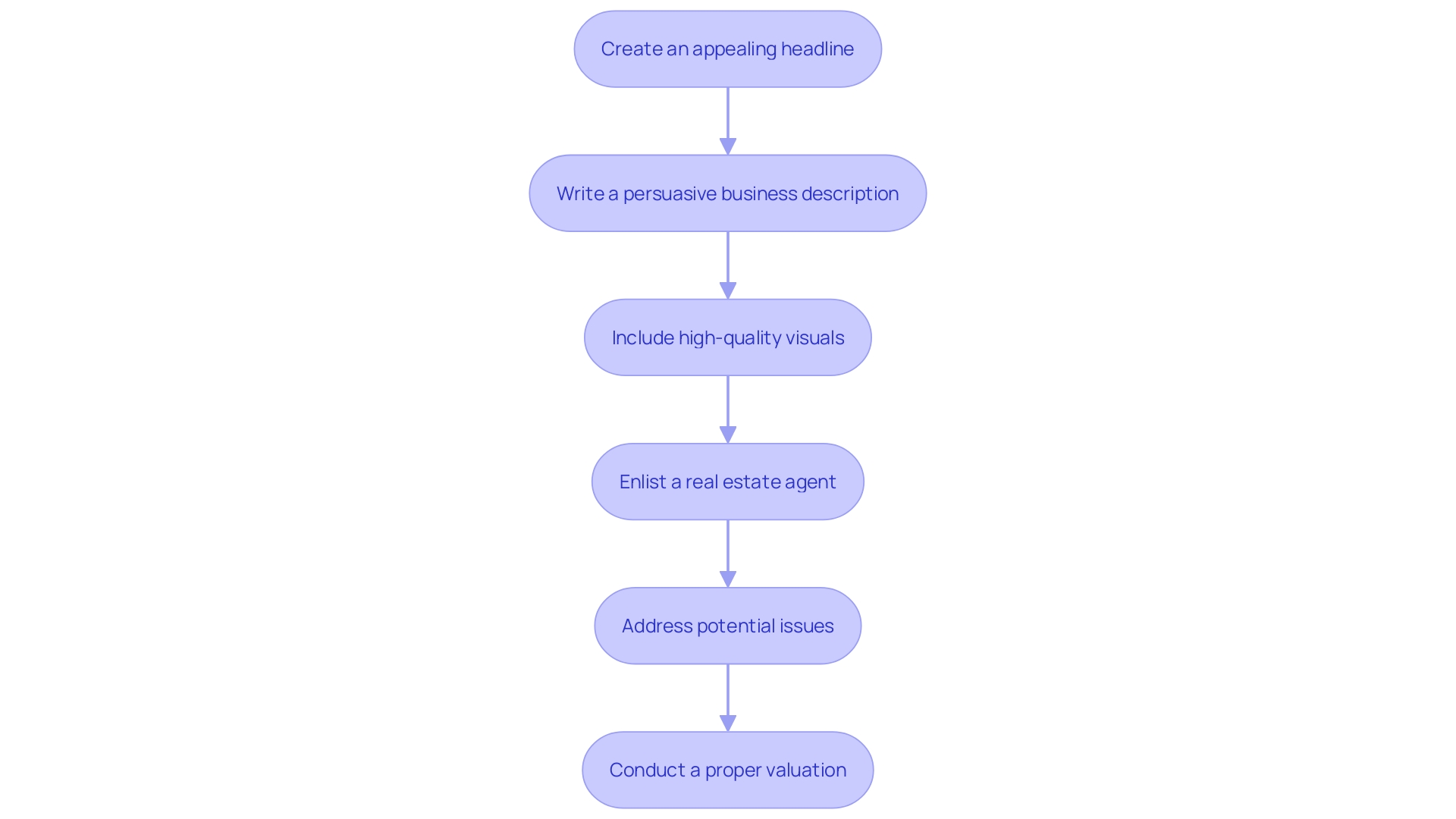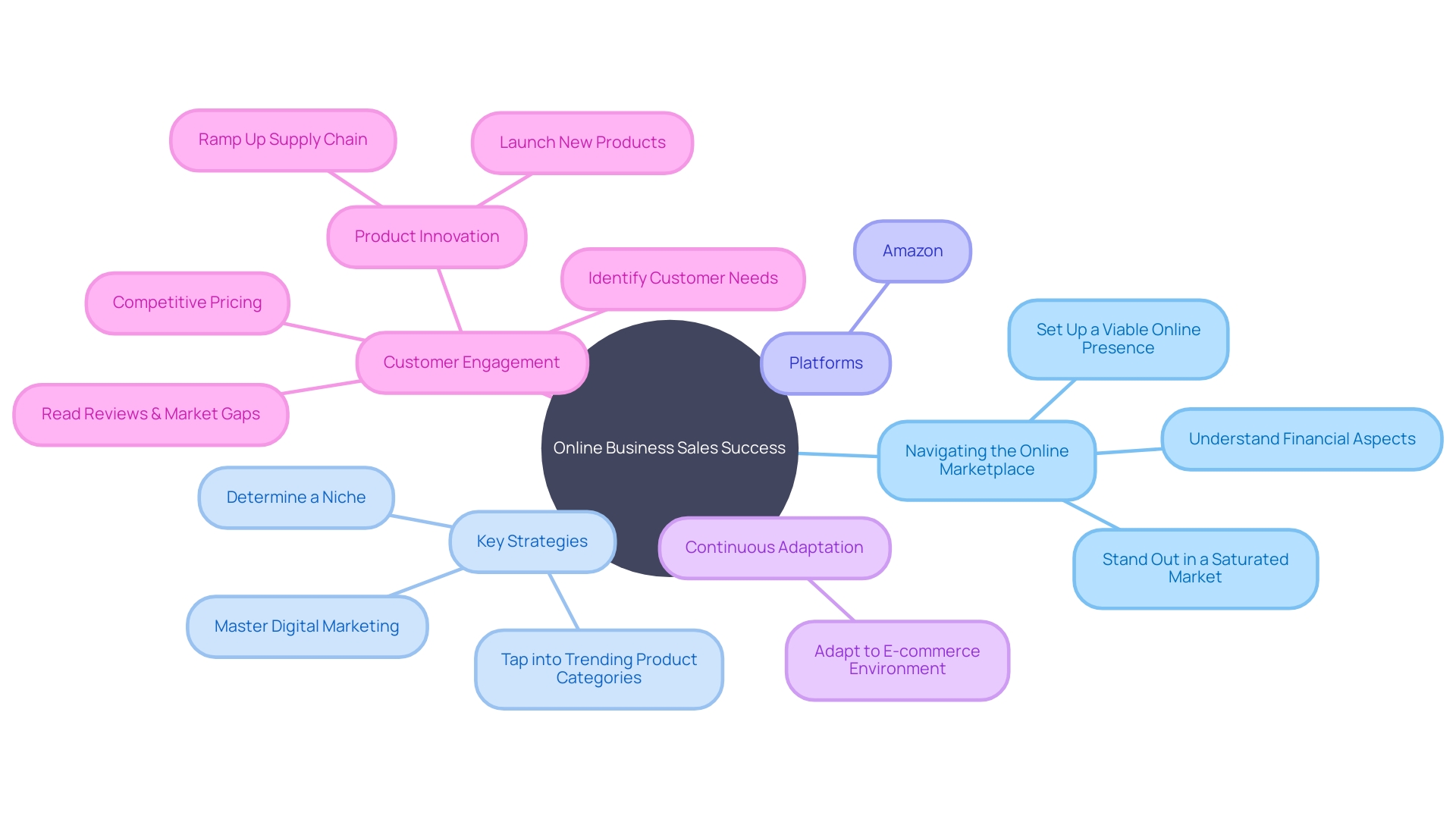Introduction
Exploring the vast ocean of opportunities in the online selling landscape can be both exciting and daunting for small business and ecommerce venture owners. With a multitude of platforms available, each catering to different markets and offering unique advantages, finding the right fit for your business is crucial. From niche online marketplaces that specialize in specific products to expansive platforms selling a wide array of goods, the possibilities for success are endless.
Additionally, setting up shop in an online marketplace is typically straightforward and cost-effective, providing a space to reach a dedicated customer base without any initial investment. However, it's not just about choosing a platform; understanding the strategy behind successful online selling is equally important. Keeping operational costs low and developing a robust digital marketing strategy are key considerations.
By leveraging valuable data on current trends and consumer behaviors, sellers can make informed decisions and carve out their market niche in the competitive online landscape. So, whether you're beginning or expanding your digital footprint, the online selling landscape holds immense potential for success.
Understanding the Online Selling Landscape
Exploring the virtual marketplace is akin to navigating a vast ocean of opportunities for small business and ecommerce venture owners. The digital realm offers a plethora of platforms where one can showcase and sell a business, each with its unique advantages. From niche online marketplaces that cater specifically to handcrafted goods, to expansive platforms selling a wide array of products, the key is to find the right fit for your business.
Video games and their accessories, for example, have seen a significant uptick in online sales, suggesting that a platform specializing in gaming could be a lucrative avenue for sellers in that market.
Moreover, the process of setting up shop in an online marketplace is typically straightforward and cost-effective. Sites like Etsy allow sellers to establish an account without any initial investment, providing a space to reach a dedicated customer base. This ease of entry makes online marketplaces an attractive option for those looking to either begin or expand their digital footprint.
But it's not just about choosing a platform; it's also about understanding the strategy behind successful online selling. Considerations like keeping operational costs low and developing a robust digital marketing strategy are crucial. Reports and insights, such as those provided by PYMNTS Intelligence, offer valuable data on current trends and consumer behaviors, assisting sellers in making informed decisions.
As the digital economy continues to evolve, the importance of having a centralized hub for your online sales becomes increasingly clear. Sellers are encouraged to leverage these insights and opportunities to carve out their market niche and thrive in the competitive online landscape.

Finding the Right Online Platforms and Sites
Selecting an online platform to sell your small business or e-commerce venture is a critical decision that can determine the success of your transaction. These platforms not only provide a marketplace for your business but also offer various tools and services to assist with the sale. For instance, certain platforms may specialize in niche markets, offering a concentrated pool of potential buyers interested in specific business types.
This can be a significant advantage as it aligns with the unique selling point of your business and targets the appropriate audience.
When considering the sale of your business, it's essential to understand the costs involved, whether you're selling an established business or starting afresh. Costs can include branding, website creation, marketing, and more. Additionally, it's important to consider the practical aspects of your online presence, such as digital marketing strategies and ways to minimize operational costs.
Platforms like Fiverr demonstrate the potential for online marketplaces to thrive, with sellers retaining a substantial portion of the sales value. In the case of Fiverr, sellers receive 80% of the total order value, which can be encouraging for business owners considering a platform that values their offerings.
Moreover, having a well-defined business valuation is crucial before listing your business for sale. Experts recommend obtaining a professional appraisal to ensure you have an accurate understanding of your business’s worth. This not only helps in setting a fair price but also positions you better during negotiations.
In contemporary times, online marketplaces are becoming the first point of search for many users, surpassing traditional search engines and retail websites. This trend underscores the importance of selecting a platform that caters to the right audience and offers visibility among a diverse range of products and sellers.
Lastly, understanding industry-specific conversion rates and benchmarking your business against them can provide insight into your online performance. Improving these rates can elevate your business above the average, making it more attractive to potential buyers.
In summary, the ideal online platform for selling your business should match your niche, provide valuable support during the sale process, and ensure your business is presented to the right audience, ultimately leading to a successful sale.
Creating an Effective Listing
When crafting a listing to sell your business, the goal is to captivate and engage potential buyers from the first glance. Start with a headline that's not just informative but also appealing, making them want to learn more. Your business description is your chance to shine; it should be rich with details and persuasive language that showcases the value and potential of your venture.
It's not enough to just list the features—emphasize the unique selling points that distinguish your business from others. Visuals are just as critical as words, so include high-quality images that truly encapsulate the essence of your business. For instance, if your business has a storied history, like the Union Hotel established in 1879, historic photographs can be a testament to its longevity and customer satisfaction.
To ensure you're presenting your business in the best light, consider enlisting a top-notch real estate agent with a proven track record. As Linda Schroder, a real estate investor, suggests, an experienced agent brings invaluable market knowledge and networking capabilities to the table, which can significantly enhance your listing's visibility and appeal. Furthermore, before listing, address any potential issues that could deter buyers.
As Jason Gelios, a Realtor, recommends, a pre-listing home inspection can preempt any surprises that could arise from a buyer's inspection.
Lastly, don't underestimate the importance of a proper valuation. Skipping this step can lead to undervaluing or overvaluing your business, both of which can be detrimental to the sale process. A professional valuation gives you a defensible starting point for negotiations and helps ensure that you receive what you deserve for your business.
With these elements in place, your listing will not only attract potential buyers but also set the stage for a successful sale.

Maximizing Exposure and Reach
Maximizing the visibility of your online listing is crucial to attract potential buyers. Effective promotion involves a blend of techniques, beginning with high-quality content creation. Your listing should serve as an information-rich hub that captures the essence of your business, thus improving its ranking on search engines.
Highlighting the unique aspects of your business and providing valuable insights can establish you as an authority within your industry. Additionally, focusing on long-tail keywords can be beneficial, especially if your website's Domain Authority is still growing, as it can reduce competition and target more specific buyer interests.
When considering the reach of your listing, social media's power cannot be overlooked. With billions of users worldwide, it's an excellent tool for enhancing your business's online presence. Engaging with your audience through these platforms by sharing your listing can significantly increase exposure.
Remember, every second, new users are joining social media, offering fresh opportunities to connect with potential buyers.
Moreover, local business content marketing is a strategy that can immensely benefit your visibility. By creating content that resonates with your audience and showcases your expertise, you can improve your online footprint. This approach is about more than just publishing; it's about crafting a narrative that aligns with your brand and speaks directly to your intended customers.
Leveraging SEO is another way to ensure your listing rises above the competition. By understanding the importance of experience, expertise, authoritativeness, and trustworthiness (E-E-A-T), you can tailor your content to meet these criteria and improve its ranking.
To sum up, by combining quality content, strategic keyword use, robust social media engagement, and dedicated SEO efforts, you can significantly enhance your listing's visibility and attract more qualified buyers. This multi-faceted approach is key to generating interest and inquiries for your business sale.
Engaging with Potential Buyers
Mastering the art of engagement with prospective buyers is pivotal in fostering trust and setting the tone for a fruitful relationship during the sale of your business. This includes adeptly handling inquiries, executing virtual tours or on-site visits, and skillfully navigating negotiations. Demonstrate the unique value of your business, attentively resolve queries, and alleviate any buyer apprehensions to bolster their confidence in the transaction.
For instance, in the case of Akiya purchases, transparency and thorough communication are key. Buyers need to grasp the full scope of the project, including costs. One American client's quest for a property near Chiba Prefecture's beaches illustrates the importance of understanding a buyer's vision through detailed discussions and questionnaires.
The diligent search that followed, examining hundreds of properties, underscores the commitment to meeting client specifications.
Similarly, a hotel company's need for a foundational strategy before advertising echoes the necessity of preparation. By implementing tools like Google Analytics and researching keywords, the groundwork is laid for successful negotiations.
A poignant reminder from experts in the field is that understanding your business's worth is non-negotiable. A thorough valuation ensures you don't sell short or overprice, which could deter potential buyers. Leveraging professional valuation services can provide a clear picture of your business's market value, reflecting financials, assets, customer base, and market trends.
Additionally, carrying out data-driven negotiations can significantly benefit both buyers and sellers. Employing data as a negotiating tool—tracking service issues and usage history, for example—can lead to more strategic and effective discussions.
Incorporate these insights into your engagement strategy to not only showcase the value of your business but also to navigate the complexities of sale negotiations with finesse and informed confidence.
Navigating the Due Diligence Process
As you embark on the potential sale of your business, the due diligence phase is a critical juncture that requires meticulous preparation and transparency. This essential phase involves an exhaustive examination of your business by potential buyers, and it's not limited to financial scrutiny. Expect this process to delve into every facet of your operation, from adherence to environmental regulations to the integrity of your IT infrastructure.
A thorough due diligence process exposes risks needing attention, such as legal and regulatory obligations particularly pertinent in highly regulated industries. Financial health remains a cornerstone of due diligence, where your financial statements, assets, liabilities, cash flows, and projections come under close inspection. Legal liabilities, tax compliance, and any existing partnerships or licensing agreements will also be reviewed to ensure everything is in order.
One of the most insightful components of this process is the Quality of Earnings (QoE) assessment. This evaluation goes beyond the surface to assess the sustainability and accuracy of your financial reporting, providing a transparent view of your business's earnings quality and financial health. It scrutinizes revenue sources, checking for sustainability and any dependencies on key customers, which could indicate customer concentration issues.
The importance of a well-organized due diligence phase can't be overstated, as it instills confidence in potential buyers and lays the groundwork for a smooth transition. To prepare, consider the advice of seasoned experts from GrowthPoint, who suggest a three-phase approach starting with Data Prep. In this initial phase, you'll compile all necessary financial materials, customer data, and conduct analysis to anticipate investor or acquirer questions.
This preparation includes detailing your technology, product offerings, strategy, market differentiation, and product-market fit.
Remember, the sale of a business is not just a financial transaction but a life-changing event that often resembles a partnership between the buyer and seller. Understanding the perspectives and experiences of the party across the table goes a long way in facilitating deal negotiations. It's a task that demands time, negotiation skills, and a willingness to make concessions to reach a mutually beneficial agreement.
Keep in mind the words of industry professionals: asserting that your business faces no competition could be seen as a lack of insight or awareness, potentially turning off investors who prefer to see market understanding and strategic foresight. Similarly, investors look favorably on founders with 'skin in the game'—those who have made personal and financial commitments to their business.
In conclusion, whether your business is valued at $3 million or $30 million, approaching the due diligence process with a comprehensive, organized, and transparent strategy is essential for a successful sale.
Closing the Sale and Transitioning Ownership
Finalizing the sale of your business is a significant milestone, and it involves a series of critical steps to ensure that the transition to the new owner is as smooth and favorable as possible. It begins with an accurate valuation of your business, a step that cannot be overstated. Consider engaging a professional appraiser who can take an objective look at your financial statements, assets, customer base, and industry trends.
This valuation is not just a number—it's a powerful tool during negotiations, one that ensures you don't settle for less than what your business is truly worth.
The importance of a well-drafted purchase agreement cannot be overstressed. This legal document outlines the terms of the sale, including the transfer of assets and how any existing obligations will be handled. It's a blueprint for the transaction and serves to protect the interests of both buyer and seller.
Remember, clear communication with the buyer throughout this process is paramount. It not only fosters trust but also facilitates a smoother transition.
With a solid purchase agreement in place, you can proceed to the transfer of assets. This is the tangible handover of the business, and it can include everything from digital properties to physical inventory. If you've done your due diligence, which should include a thorough assessment of all deals within your niche, this step should confirm the wisdom of your decision to sell.
During the transition, it's vital to settle any outstanding obligations to maintain the integrity and continuity of the business. This is also the time to apply the insights you've gained from a deep dive into your industry's market data and trends, ensuring you've maximized the sale's potential. In the end, those sellers who have prepared and entered into this final stage with eyes wide open are the ones who find themselves most satisfied with the outcome.
Their proactive approach and attention to detail during the closing phase echo the commitment they've shown throughout their entrepreneurial journey.

Learning from Successful Sellers
Understanding the journeys of those who have traversed the path of online business sales can equip you with the arsenal needed for your own success. Entrepreneurs who have navigated the online marketplace offer a treasure trove of knowledge on how to stand out in a saturated market, the intricacies of setting up a viable online presence, and the financial aspects of running an e-commerce venture. From determining your niche to mastering digital marketing strategies, these stories provide a holistic view of the online business landscape.
Whether it's the initial investment in branding, SEO, and technology or the continuous evolution required to keep pace with changing e-commerce trends, these insights can form the blueprint for your success. Moreover, tapping into trending product categories, like video games and their accessories, can present lucrative opportunities. With e-commerce giants like Amazon fostering a platform for millions of customers, sellers have the chance to showcase their products to a vast audience without the immediate need for a physical storefront.
Amazon's support for brands and sellers underscores the growth potential in the online selling space. As brand owners' sales on Amazon grew by over 20% in 2022 compared to the previous year, the platform's capacity for facilitating successful business ventures becomes clear. By assimilating these experiences and adapting to the fast-paced e-commerce environment, you can lay the groundwork for a prosperous online business sale.

Avoiding Common Pitfalls and Mistakes
When it comes to selling an online business, mastering the art of valuation and understanding the sales process are pivotal. It's not just about setting a price tag; it's about comprehensively evaluating your business's worth. To steer clear of the common mishap of undervaluing or overvaluing your business, it's advisable to bring a business appraiser on board.
They'll expertly dissect your financials, assets, clientele, and market trends, bestowing you with a fair market value that will be your beacon during negotiations, ensuring you don't undersell your hard work.
Moreover, decide whether a stock sale or an asset sale suits you best. Each has unique tax implications and can affect your capital gains differently. For instance, the capital gain from selling your business, which is the difference between the initial investment plus improvements and the final selling price, could be subject to different tax treatments based on whether it's a stock or asset sale.
Lastly, don't overlook the practicalities. Whether you're buying an established venture or starting from scratch, weigh the costs of growth and maintenance against the initial outlay. Consider how you'll manage expenses like branding, SEO, and marketing, and devise a digital marketing strategy to corner your market.
By being informed and strategic, you'll confidently navigate the online selling landscape, optimizing your chances for a profitable and successful transaction.
Conclusion
In conclusion, the online selling landscape offers vast opportunities for small businesses and ecommerce ventures. Finding the right platform that aligns with your niche is crucial for success. Setting up shop in an online marketplace is straightforward and cost-effective, making it an attractive option for those looking to begin or expand their digital footprint.
By leveraging valuable data on current trends and consumer behaviors, sellers can make informed decisions and carve out their market niche in the competitive online landscape. Maximizing exposure and reach through high-quality content, social media engagement, and SEO efforts is vital to attracting potential buyers. Engaging with potential buyers involves adeptly handling inquiries, resolving queries, and skillfully navigating negotiations.
Navigating the due diligence process with meticulous preparation and transparency instills confidence in potential buyers and paves the way for a smooth transition. Finalizing the sale of your business requires accurate valuation, a well-drafted purchase agreement, and clear communication with the buyer. Learning from successful sellers can provide valuable insights into standing out in a saturated market and understanding the financial aspects of running an ecommerce venture.
Avoiding common pitfalls by mastering valuation, understanding the sales process, and considering the tax implications is crucial. By understanding the online selling landscape, selecting the right platform, maximizing exposure, engaging with potential buyers, navigating due diligence, finalizing the sale, and learning from successful sellers, you can increase your chances of a successful online business sale.




